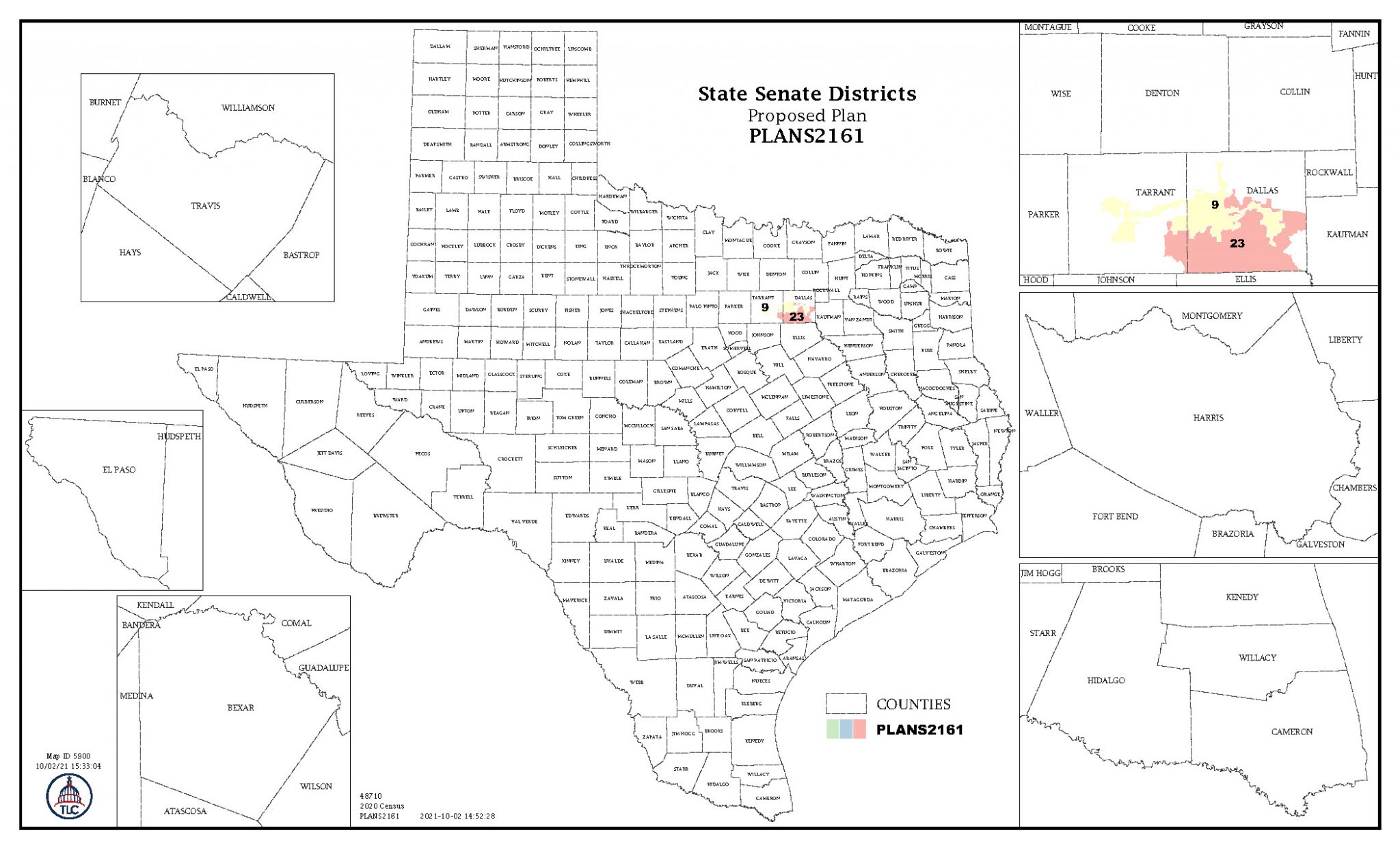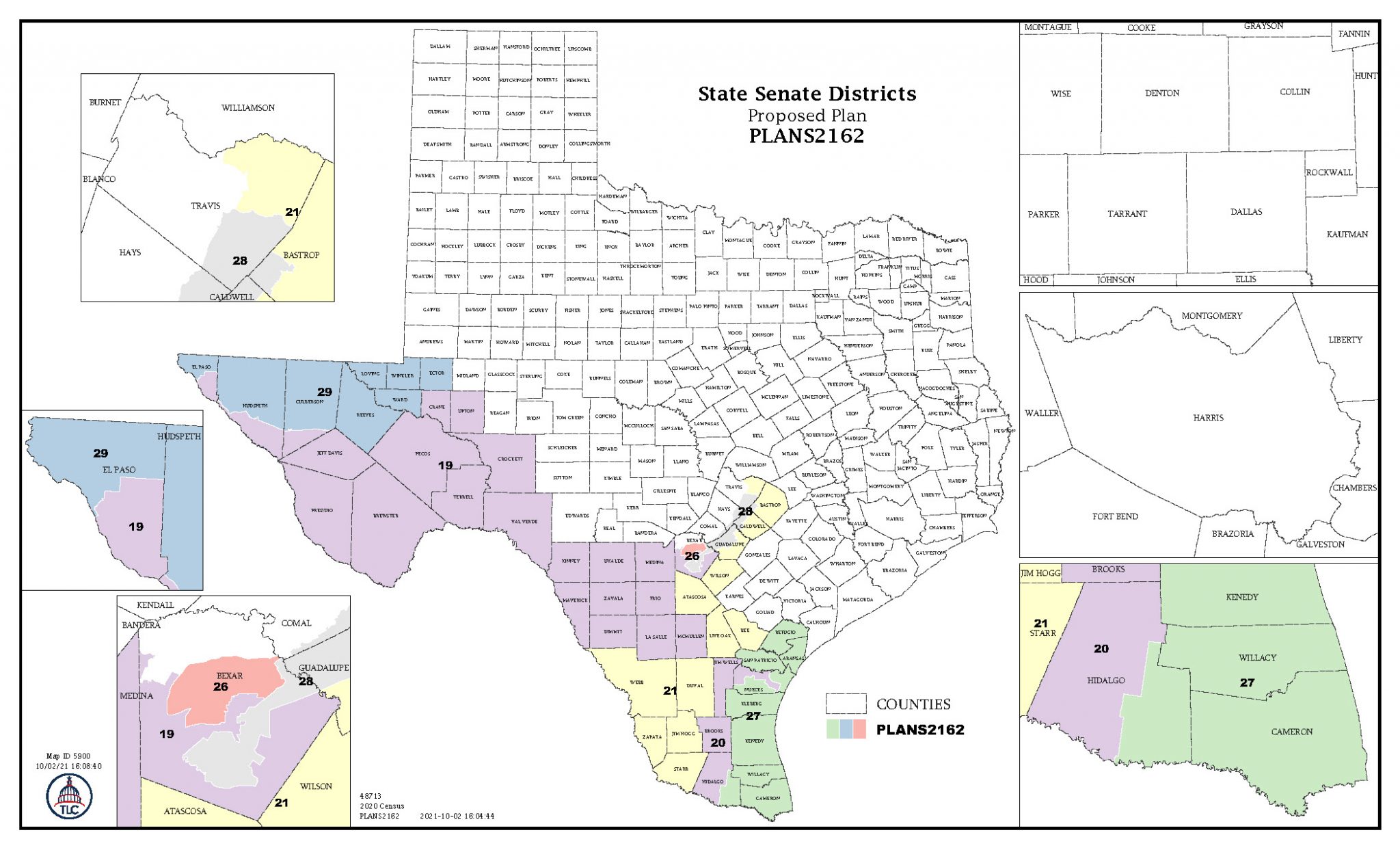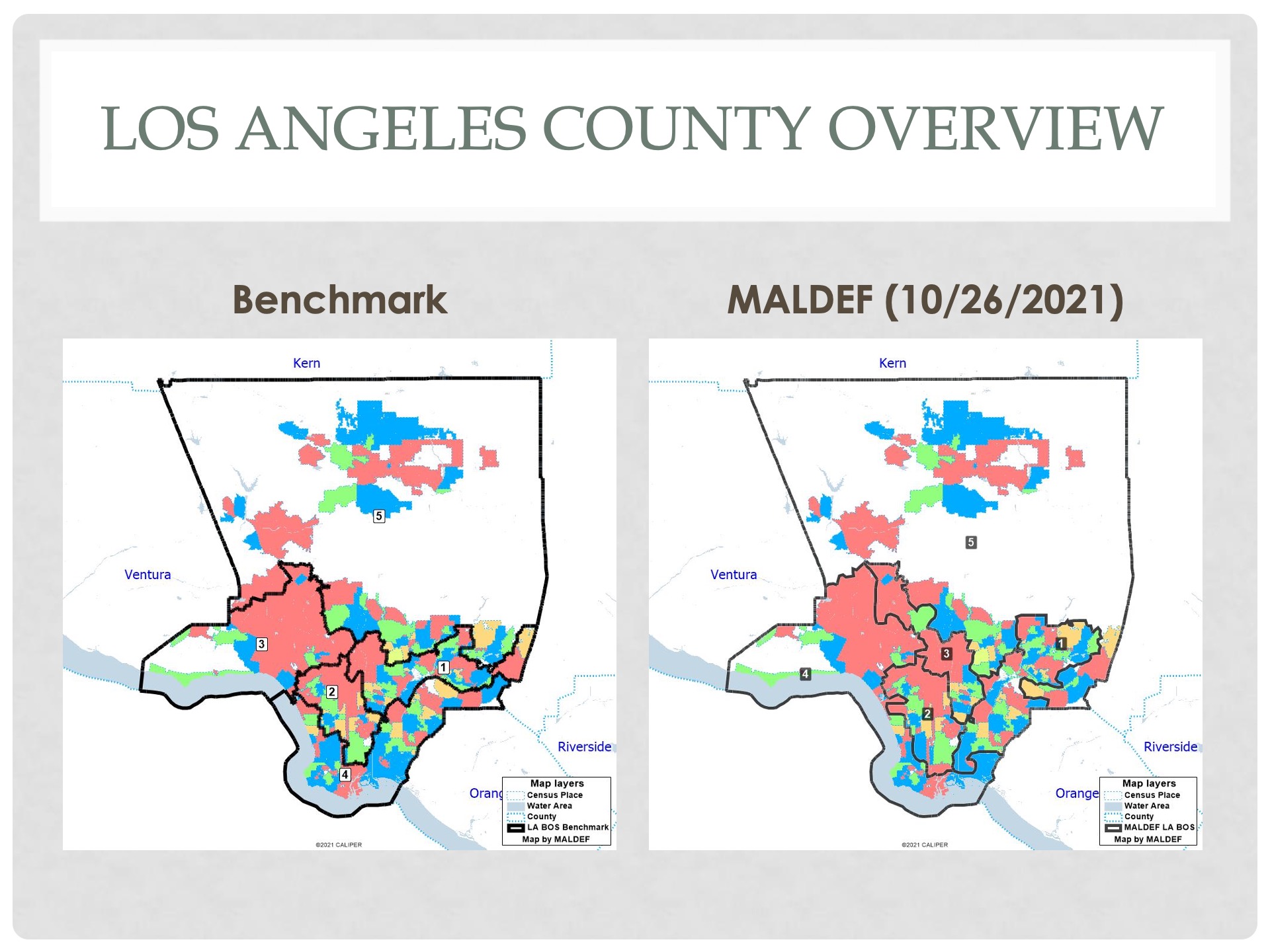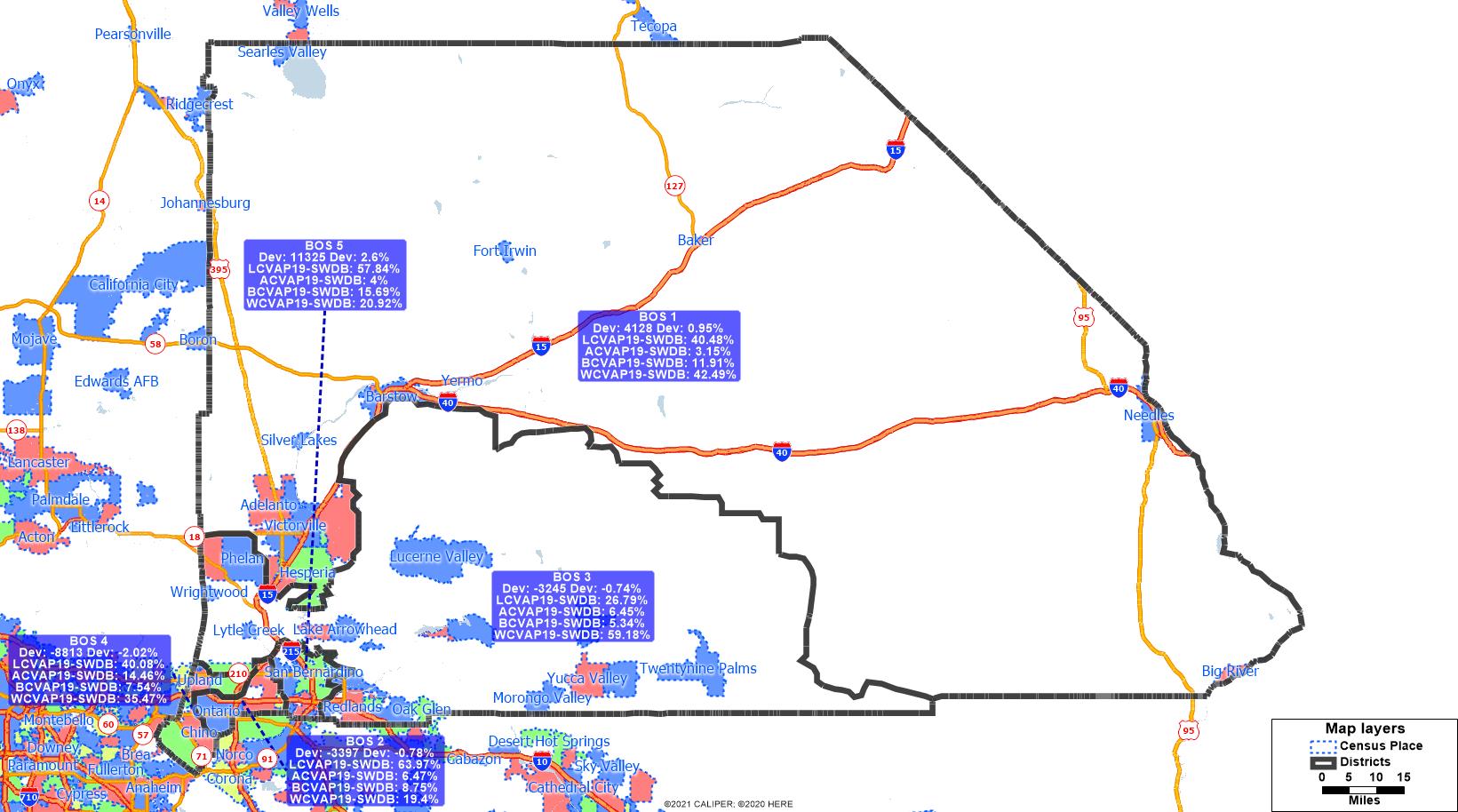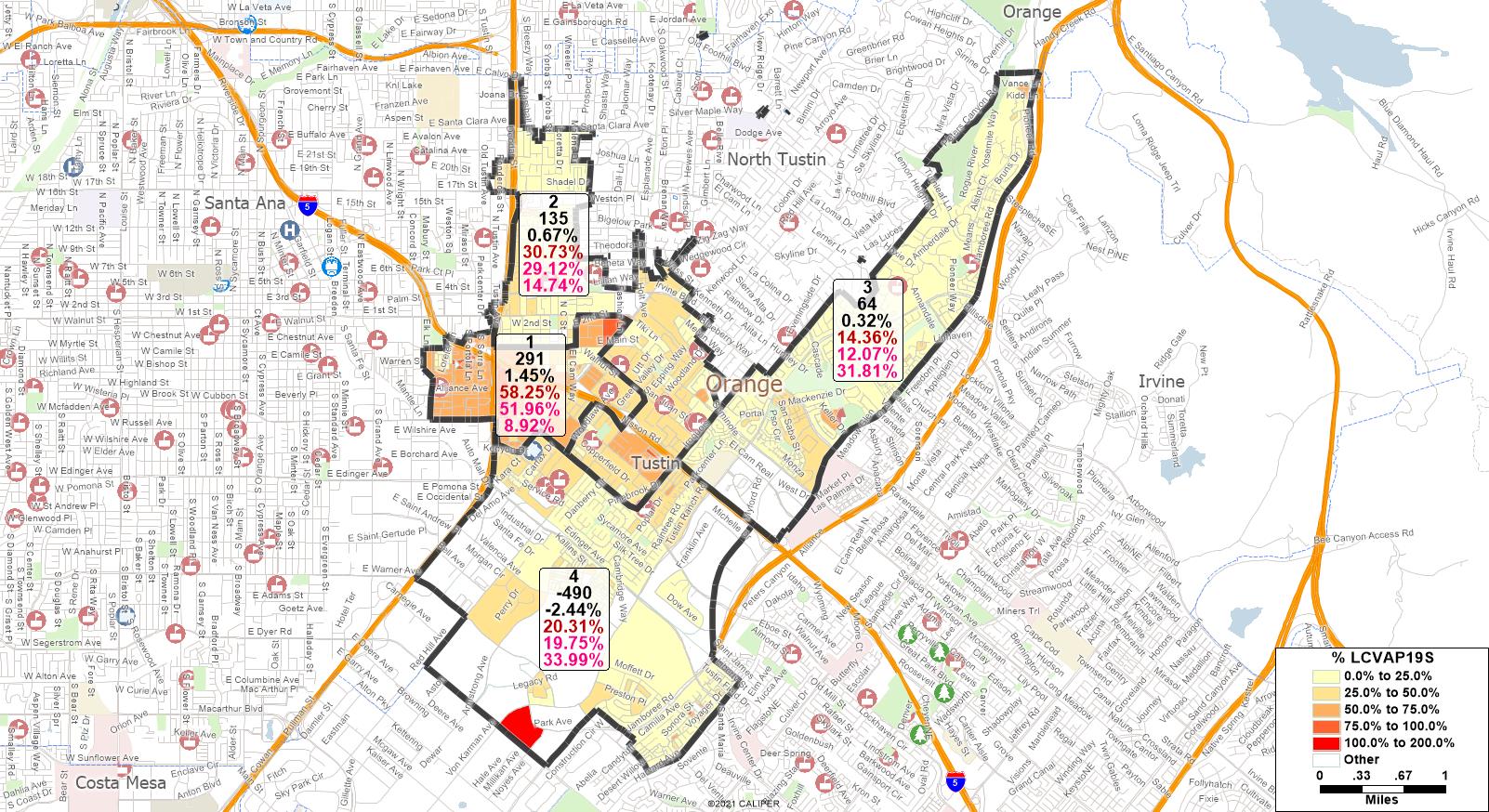Testimony of Nina Perales, MALDEF Vice President of Litigation before the
United States House of Representatives Committee on House Administration
Subcommittee on Elections on March 17, 2022
Mr. Chairman and members of the Judiciary Committee, thank you for the invitation to
testify regarding “Voting in America: Ensuring Free and Fair Access to the Ballot in Texas.” My
name is Nina Perales and I serve as Vice President of Litigation for MALDEF, the Mexican
American Legal Defense and Educational Fund, Inc. MALDEF is a national civil rights
organization that conducts community education, policy advocacy and where necessary
litigation. Since our founding as a non-partisan civil rights organization in 1968, MALDEF has
served as the primary organization that litigates voting rights cases on behalf of Latinos in the
United States.
My testimony today will focus on several current policies in Texas that make it more difficult for
Latinos and other racial minorities to vote.
Texas is a rapidly changing state. From 2010 to 2020, the Hispanic population in Texas
increased by close to 2 million (1,980,000), and the White Alone Non-Hispanic (“Anglo”)
population in Texas increased by less than 200,000 (187,252). Based on recent demographic
trends, the Texas State Data Center estimates that the Latino population of Texas will match the
Anglo population in 2021. Over the past decade, racial minorities constituted 95% of the
population increase in Texas (including persons who identify as being of more than one race).
This demographic trend has been similar for the past three decades.
Latinos are the most significant component of Texas’s expanding electorate. Among those
turning age 18 in Texas in 2020, just under half were Latino. With respect to voter participation,
Latinos again constitute a growing portion of the electorate. In the 2018 midterm election, Texas
Latinos increased their vote share by almost five percentage points — from 14.4% to 19.1% of
all votes cast (compared to 2014 midterm election).
In this context, laws that make voter registration and voting more difficult have a disparate,
negative impact on Latinos and other minority voters entering the electorate.
I. Senate Bill 1
The law known as Texas Senate Bill 1, which imposes restrictions on voting, voter assistance
and voter outreach, became law on December 2, 2021. The first major elections following
passage of SB1 were the partisan primary elections of March 1, 2022.
In the March Primaries, in the sixteen largest Texas counties, election officials rejected more
than 18,000 mail ballots; the overwhelming majority of these ballot rejections were for failure to
meet SB1's new requirements.
Before SB1, voters in Texas would sign their mail ballot envelopes and election officials would
count the ballots after verifying the voters' signatures. Rejection rates were low. The U.S.
Election Assistance Commission reported that county election officials rejected less than 2% of
mail ballots statewide in the 2018 midterm election. The statewide rejection rate in the 2020 presidential election was less than 1%.
In the March 2022 election, mail ballot rejection rates soared in large Texas counties as SB1
demanded information that local election officials could not match to voters.
In Travis County, home to Austin, under SB1 the mail ballot rejection rate jumped from 2% to
8%. In Harris County, home to Houston, the mail ballot rejection rate was 19% — up from .3%
in 2018. In Bexar County, home to San Antonio, the mail ballot rejection rate was 22%.
In other words, when the election was over and all the votes counted, more than 4,000 of the more
than 18,000 Bexar County voters who returned mail ballots did not have their ballots counted.
These numbers obscure the true impact of SB1. The new law imposed barriers for mail ballot
applications as well as mail ballots. Voters and local election officials struggled at both stages of
the process. Many voters who sent an application did not receive a mail ballot because they
were thwarted by SB1's new requirements on the application itself. At both points in the
process (application and voting the mail ballot) SB1 forced county election officials to turn away
voters who wanted to vote by mail. Texas only allows mail voting by those who are over age 65,
disabled or absent from the jurisdiction on Election Day. When SB1 caused the rejection of their
mail ballot applications, these voters had to try to cure their applications in the remaining time,
or vote in person at the polls when voting in person was often physically difficult or impossible.
SB1 made voting more difficult by imposing a new requirement that local election officials
“match” mail voters' driver's license or social security numbers to those voter's registration
records when the voter registration records often did not have either driver's license or social
security numbers. Election officials told voters that in order to vote by mail they would have to
fill out a new voter registration form and provide new information before looming election
deadlines. For the thousands of voters with little education, the elderly, housebound and those
without internet access, SB1 created unnecessary and even insurmountable barriers to voting.
One voter with whom MALDEF has been in contact, I will call him Jim, is a long time voter and a
senior citizen living in San Antonio. Jim and his wife began the annual process of applying for
their mail ballots during the first week of January. They applied for mail ballots using the correct
mail ballot application form and included their Texas driver’s license numbers on the application.
Several weeks later, Bexar County rejected Jim’s mail ballot application pursuant to SB1. Jim
received a phone call from the county election office asking him to complete a new voter
registration form and to submit a new application for mail-in ballot. Jim completed these forms
and submitted them.
Several weeks later, Jim received another notice from the county, rejecting his mail ballot
application again. Jim again called the county elections office. The elections office advised Jim
that he needed to re-submit the forms, and to submit them together in one envelope.
Finally, after submitting his third application for a mail ballot, Jim received his mail ballot on
February 22, 2022, with little time to spare before the election. Jim quickly mailed in his ballot,
but, concerned that it might not have arrived on time, he tried to use the new online ballot
tracker established by SB1. The online ballot tracker website claimed that no ballot matched his
entry. After calling the county elections office yet another time, Jim was able to receive
confirmation that his mail ballot had been counted.
At the same time that SB1 made it more difficult for voters to request a ballot by mail, SB1 made
it a state felony for election officials to proactively send voters applications for ballot by mail,
even when those voters were automatically eligible to vote by mail (such as those over age 65).
Election officials in Harris County, where Latinos are 30% of the voter eligible population, and in
Hidalgo County, where Latinos are 88% of the voter eligible population, were forced to abandon
their practice of sending voters over age 65 applications for mail ballots.
SB1 also thwarted in-person voting in the March Primary elections. SB1's creation of new
crimes related to poll workers turning away unruly watchers, and poll workers who help voters
beyond just reading and marking the ballot, put poll workers at risk of committing a felony while
carrying out their job duties and caused shortages of people willing to work at the polls. Voting
locations throughout the state were unable to open on March 1 because of election staff shortages, causing some to open later in the day and others to shut down completely. According to the Dallas County elections website, ten polling locations in Dallas completely shut down because of the staffing shortages. In neighboring Tarrant County, more than 170 election workers dropped out at the last minute. One local election judge explained, “I still have concerns for legal liability for telling someone something wrong or helping someone do something that I’m not authorized to do because of the change in the laws.”
SB1's restrictions on voter assistance also deprived voters of their chosen assistors, to which
they have the right under federal law. In Hidalgo County, the community based organization La
Union del Pueblo Entero reduced the number of staff it provided to assist voters in the March
Primaries because of the new criminal liability for assistors who help voters navigate the polling
place, interact with poll workers and learn to use voting machines. As a result, voters who
traditionally rely on LUPE staff to help them vote did not receive this assistance.
SB1 Limits Language Assistance to Latino and Asian American Voters
SB1's restrictions on voter assistance have a particularly negative impact on voters who are
limited English proficient. For example, one in ten U.S.-born Latino adults does not speak
English well. Slightly more than half of naturalized U.S. citizens who are Latino do not speak
English well. Texas is home to close to two million naturalized U.S. citizens, the majority of
whom are Latino or Asian American. All of these limited English proficient individuals, who
are also U.S. citizens, have the right to receive language assistance when they vote.
SB1 imposes requirements that a voter assistor swear an oath under penalty of perjury to
restrict their assistance. These new oath requirements deter assistors and deny limited English
proficient voters the assistance to which they are legally entitled under federal law.
Section 6.04 of SB1 requires the assistor to swear an oath stating that the assistor will confine
the assistance to reading and marking the ballot. This provision subtracts even from current
Texas law which allows an assistor to answer questions posed by the voter while casting the
ballot. Section 6.04 of SB1 also requires the assistor to swear an oath stating that the assistor secured
a statement of eligibility from the voter. This requirement invades the privacy rights of voters
and will deter assistors who are uncomfortable securing a statement of eligibility from a voter
who asks for assistance. The new oath requires the assistor to acknowledge that “if assistance
is provided to a voter who is not eligible for assistance, the voter’s ballot may not be counted.”
This language further reinforces the requirement to invade the voter’s privacy and will deter
assistors who worry that their assistance will result in rejection of the voter’s ballot.
The voter assistance restrictions in SB1 not only have a disparate, negative impact on Latino
and Asian American voters, the provisions conflict with Section 208 of the federal Voting Rights
Act. 18 Under Section 208 of the federal Voting Rights Act, a voter has the right to assistance
without having to explain his or her eligibility to an assistor. A voter’s right to assistance extends
beyond just reading and marking the ballot and includes assistance in navigating the polling
place, interacting with poll workers and understanding how to use the voting equipment – all
things an assistor must swear not to do in the oath required by SB1. SB1's restrictions on
assistance harm not only limited English proficient voters. A voter who is physically disabled
has the right to an assistor even if the voter can see and mark the ballot. For example, a voter in
a wheelchair or a voter who uses sign language to communicate is also entitled to assistance
navigating the polling place, interacting with poll workers and using the voting equipment.
SB1 also increases the burdens of language assistance on the voter and the assistor by adding
new paperwork requirements that will deter assistors, slow down voting and increase wait times
at the polling place.
Section 6.03 of SB1 creates a new requirement that individuals who assist voters fill out forms
that require the relationship of the assistor to the voter, and whether the assistor received or
accepted any form of compensation or other benefit from a candidate, campaign, or political
committee. Section 6.05 of SB1 requires individuals who assist voters with mail ballots to state
on the carrier envelope the relationship of the assistor to the voter and whether the assistor
received or accepted any form of compensation or other benefit from a candidate, campaign or
political committee in exchange for providing assistance. Knowingly failing to comply with this
requirement is a state jail felony unless the assistor is a family member. Section 6.01 of SB1
also requires persons who assist voters by simultaneously transporting seven or more curbside
voters to a polling place to submit a form that contains the assistor’s name and address and
whether the person is solely providing transportation or additional assistance. If the assistor is
related to each voter then the assistor is exempt from this requirement.
The new paperwork requirements in SB1 will slow down the voting process and increase wait
times at polling places in predominantly Latino neighborhoods. Requiring assistors to fill out new
forms, and take longer oaths, will take time even when the assistors are willing to serve. At
polling places where there are more voters who need language assistance, the lines will slow
down, voters will be forced to wait more time to vote, and some will leave before voting because
they have to meet work and family commitments.
None of the assistance restrictions are based on evidence that voters who need assistance
because of limited English proficiency or disability are involved in fraud. Instead, the
legislative leadership supporting these restrictions invoked old racial stereotypes of minorities as
either cunning criminals or easily duped voters. In the hearings leading up to SB1's passage,
legislators were treated to a racially demeaning story by a Texas Assistant Attorney General
about trading plates of chicken for Latino votes on the U.S. Mexico Border. In addition to being
untrue, this story is based on statements by a discredited official of a county that MALDEF
successfully sued for unconstitutionally suppressing voter outreach at the polls.
SB1 invites voter intimidation by poll watchers
Sections 4.01, 4.06, 4.07, and 4.09 of SB1 strip voters of the protections of privacy and security
in the polling place and invite vigilantism by poll watchers. Section 4.06 of SB1 creates a Class
A misdemeanor for an election officer who intentionally or knowingly refuses to accept a
watcher, even if the poll worker is concerned the poll watcher is disruptive or intimidating voters.
Section 4.07 of SB1 empowers poll watchers to “sit or stand near enough to see and hear the
activity” they are observing, which effectively removes the requirement that watchers maintain
their distance from voters who are marking their ballots. Section 4.07 of SB1 also prohibits a
watcher from being denied “free movement where election activity is occurring.” Allowing poll
watchers to roam around inside a polling place and stand close to voters and election workers is
entirely unnecessary. The only effect of allowing poll watchers to roam around and stand near
voters inside a polling place is to make voters uncomfortable and less likely to remain in the
polling place and vote.
Sections 4.01 of SB1 prohibits a presiding judge from removing poll watchers from the polling
place for any reason other than a violation of the penal code unless the activity was observed by
an election judge or clerk. This means poll watchers are allowed to remain in the polling place
and intimidate voters up until an election judge or clerk observes that activity.
Section 4.09 of SB1 creates an offense for election officers who knowingly prevent a watcher
from observing an action or procedure the person knows the watcher is entitled to observe. This
includes any action to obstruct the view of a watcher or action to distance a watcher from the
activity or procedure the watcher wishes to observe but is not reasonably able to do so from that
position. The crime is punishable by up to 1 year in jail, a fine of as much as $4,000, or both.
This provision ensures that not only will voters be intimidated by unrestrained poll watchers, but
election officials will also be intimidated by the threat of severe penalties for trying to protect
voters from poll watcher interference.
Latino voters in Texas have borne the brunt of more than a century of voter intimidation by
vigilantes as well as officials in law enforcement and elections. In just one example, in 1928, the
Weslaco barrio election box was assailed by the local “Good Government League.” According to
a federal report, a crowd of 3,000 to 4,000 Anglos at the polling place shouted “Don’t let those
Mexicans in to vote. Throw them out” while men with shotguns protected the crowd. An
estimated 200 to 300 regular Mexican American voters “did not show up at all.” In another example, a South Texas lawyer, Marshall Hicks, testified in a Texas Senate investigation that his
client’s opponent, D.W. Glasscock had the Texas Rangers selectively “investigate” Mexican
American voters, and spread “a spirit of terrorism among those Mexican people.” Historian Evan
Anders noted in his book that “the mere presence of armed Rangers at the polling stations had
an intimidating effect on the Hispanic population” in Cameron, Duval, Nueces, Hidalgo, and
Starr Counties. In the 1970's it was a routine occurrence for Latinos to face intimidation at the
polls as well as economic reprisals for voting.
Before you dismiss these examples of racially-motivated voter intimidation as relics of the past,
note that in the 2021 Texas Regular Legislative Session an earlier version of SB1 explained the
purpose of the “Election Integrity Protection Act of 2021” (same name as SB1) with notorious
language about preserving “the purity of the ballot box.” Historically, this phrase was used to
justify excluding individuals from the electorate on the basis that the individuals were morally
impure, prone to committing fraud, likely to infect the election process and thus appropriately
denied the right to vote. Latinos in Texas have found themselves targeted by ballot purity
policies. For example, in 1913, State Rep. Joseph O. Boehmer of Eagle Pass established the
Ballot Purification League, and submitted a bill admitting his intent was “to disqualify the
Mexicans of the Western and Lower Rio Grande Counties.” Phrases like “the purity of the
ballot box,” reveal legislative intent to exclude minority and disfavored populations from voting,
and ballot “purity” policies have no place in modern election laws.
SB1 improperly targets voters for investigation
Senate Bill 1 also creates a pipeline for criminal prosecution of voters who make a mistake in
registration or who have committed no crime.
For example, section 2.07 of SB1 creates a requirement for the Secretary of State to analyze on
a quarterly basis the lists of individuals who were excused from jury duty service for
non-residence in the county with the statewide voter registration list and to send notice to the
voter registrar of the county. The Secretary of State is not required to send notice to a voter who
is subject to an exemption from jury service, if that exemption is the only reason the voter is
excused from jury service. This requirement will launch baseless investigations of voters who
are properly registered to vote at their domicile address but who are excused from jury duty
service because they temporarily reside elsewhere for work.
In Texas, it is a routine occurrence for individuals to live temporarily away from the address
where they are registered to vote. The fact that someone is living away from his or her voter
registration address is not evidence of voter fraud. It is not an offense to move away from the
address at which you are registered to vote and it is a common circumstance. Some adults
move away from their voter registration address for a job, such as farm workers who leave their
homes in South Texas to work in the fields in northern states. When any of these individuals
respond to a jury summons questionnaire and truthfully state that they are not at that moment
residing at their voter registration address, there is no evidence of a crime because there is no
requirement in Texas law to cancel your voter registration when you reside elsewhere. The
decision whether to register to vote at a new address depends on whether the individual
considers herself to have changed domicile.
SB1 makes voting more difficult without justification
Provisions in SB1 Articles 3 and 5 make voting more difficult for no reason at all. Limiting the
types of buildings that can be polling places, limiting the hours of operation of polling places,
prohibiting drive-thru voting, and prohibiting the proactive distribution of mail ballot applications
by state and county officials (but not political party officials) all restrict voting without any
justification.
II. Voter Purge Targeting Naturalized U.S. Citizens
In addition to making it more difficult for voters to cast a ballot, Texas has once again launched a
voter purge that improperly targets naturalized U.S. citizens for removal from the voter rolls.
In August 2021, Texas announced that it was renewing its efforts to use driver’s license data as
a basis for removing registered voters from the voter rolls on the suspicion of non-U.S.
citizenship. As part of this process, Texas sent the names of over 11,000 voters to county
election officials to proceed with the purge. Almost immediately, voters who were naturalized
U.S. citizens began to receive purge letters. Registrars in some of the state’s largest counties
have found that a sizable number of voters labeled possible noncitizens actually filled out their
voter registration cards at their naturalization ceremonies.
One voter to whom MALDEF spoke received a purge letter but has been a U.S. citizen and
registered voter since 2008. She was forced to have a family member fax her naturalization
certificate to the voter registrar of her county in order to remain on the rolls. Hundreds more
naturalized U.S. citizens around Texas have had to prove their citizenship because they were
targeted in the purge. An employee in the Cameron County Department of Elections and
Voter Registration saw the name of her 84-year-old mother on the purge list — a woman who is
a U.S. citizen and votes in nearly every election.
As of January 14, 2022, only 278 of the over 11,000 voters flagged under this voter purge
program had been confirmed to be non-U.S. citizens (less than 2.5%), but over 2,000 voters
had their voter registrations cancelled.
The purge uses stale records from the state's driver's license agency that pre-date the voters’
naturalization and subsequent registration to vote. Because permanent residents immigrants
almost always are licensed drivers before they naturalize, when they naturalize and register to
vote there is an old record of their green card at the Texas driver’s license agency.
This new purge is similar to the purge of naturalized U.S. citizen voters in Texas in 2019.
MALDEF sued Texas on behalf of naturalized U.S. citizens who received purge letters and
secured a temporary restraining order from a federal judge blocking the purge. Texas entered
into a legally binding settlement agreement that prohibits the Secretary of State from
challenging the U.S. citizenship of currently registered voters based on older data in drivers
license records but the State has brought the practice back.
To make matters worse, the Texas Secretary of State has refused to disclose the records related
to his new voter purge, even though he is required to do so by the National Voter Registration
Act. MALDEF and other non-profit organizations have brought a separate lawsuit to compel
disclosure of these records.
The Texas voter purge targeting of naturalized U.S. citizens is only the latest in a long history of
discrimination against Latino voters in Texas. As explained by the U.S. Supreme Court in 2006:
Texas has a long, well-documented history of discrimination that has
touched upon the rights of African-Americans and Hispanics to register, to vote,
or to participate otherwise in the electoral process. Devices such as the poll tax,
an all-white primary system, and restrictive voter registration time periods are an
unfortunate part of this State's minority voting rights history. The history of official
discrimination in the Texas election process— stretching back to
Reconstruction—led to the inclusion of the State as a covered jurisdiction under
Section 5 in the 1975 amendments to the Voting Rights Act. Since Texas became
a covered jurisdiction, the Department of Justice has frequently interposed
objections against the State and its subdivisions.
The U.S. Supreme Court concluded that in 2003 Texas enacted a congressional redistricting
plan that discriminated against Latinos and “undermined the progress of a racial group that has
been subject to significant voting-related discrimination and that was becoming increasingly
politically active and cohesive.” More recently, in 2018, the U.S. Supreme Court ruled that
Texas violated the U.S. Constitution when it racially gerrymandered Latino voters in its state
House of Representatives redistricting plan. In both LULAC and Perez, the U.S. Supreme Court ruled in favor of claims brought by MALDEF on behalf of Latino voters.
III. Discriminatory Redistricting
Finally, even if a voter manages to be registered to vote and successfully casts a ballot under
the restrictive regime of SB1, Texas has adopted redistricting plans that dilute Latino voting
strength across the state.
In the new congressional redistricting plan, Texas intentionally manipulated geography into and
out of two Latino majority congressional districts in South and West Texas in order to reduce the
number of Latino voters who turn out to vote in elections and weaken Latino voting strength in
the districts. Texas also failed to create three new Latino majority districts, one in Houston, one
in South/Central Texas and one in Dallas, that should have been created to reflect the growing
Latino electorate.
Thus, although Latinos constituted more than half the state's growth over the past decade, and
Texas gained two new congressional seats in the 2021 congressional apportionment, Texas has
managed to create five fewer Latino opportunity congressional districts than should be there.
As a result, MALDEF has filed suit on behalf of the League of United Latin American Citizens
(LULAC) and voters to enforce the federal Voting Rights Act in Texas.
Conclusion
In sum, restrictive election laws and policies in Texas, that touch all aspects of the process, from
registration, to casting a ballot, to the weight of your vote in newly drawn districts, operate
together to thwart the emergence of a more diverse electorate. As a result, MALDEF has once
again found itself in the courts, fighting to protect the voting rights of Texas's Latino voters. As
we have in the past, MALDEF will continue to challenge discrimination and seek equal
opportunities for Latinos to elect their candidates of choice. Much of MALDEF's litigation would
not be necessary if Congress passed the bipartisan John Lewis Voting Rights Advancement
Act, reestablishing a preclearance process to protect the rights of voters of color.
Thank you for your time. I’m happy to answer any questions of the Committee members.
